November 26, 2025
Medicare supplement enrollment can be a daunting process filled with potential pitfalls. This article will explore the most common mistakes people make when enrolling in Medicare and provide guidance on how to avoid them. Understanding these errors is crucial for ensuring that your healthcare coverage meets your needs and avoids unnecessary costs. As you prepare to enroll, being informed will help you navigate the intricacies of the process with confidence. By addressing each section outlined, you'll be well-equipped to make the best decisions for your health and financial well-being.
Misunderstanding Enrollment Periods
The Initial Enrollment Period (IEP) is a seven-month period that begins three months before you turn 65, includes the month of your birthday, and ends three months after. Missing this period could mean delayed coverage and potential penalties. Many people don't realize the importance of enrolling during this time frame, assuming they can sign up at any time without consequences. It's vital to mark your calendar and plan to take full advantage of the IEP. Waiting could lead to gaps in coverage, which might be costly if unexpected medical needs arise.
If you miss your IEP, the General Enrollment Period (GEP) offers another opportunity to sign up for Medicare. However, this period runs from January 1 to March 31 each year, and coverage won't begin until July 1. By missing the initial opportunity, you could face several months without coverage. This not only increases the risk of a penalty but also leaves you vulnerable to uncovered healthcare expenses. Therefore, it's crucial to understand and keep track of these dates to optimize your Medicare benefits.
The Annual Enrollment Period (AEP) is the time to make changes to your current Medicare plan, occurring each year from October 15 to December 7. While some might think their current plan will suffice, healthcare needs and plan details can change annually. Engaging in this period allows you to adjust your plan according to your healthcare needs for the upcoming year. Failing to act during this period can lead to maintaining an inadequate plan, potentially resulting in higher out-of-pocket costs. Staying informed about your current plan and alternatives is essential during AEP to ensure optimal coverage.
Not Considering All Coverage Options
Medicare Advantage Plans, also known as Part C, are an alternative to Original Medicare. They often offer bundled options including Part A, Part B, and sometimes Part D for prescription drugs. Many beneficiaries don't consider these plans due to a lack of understanding of their benefits. Opting for Medicare Advantage might provide more comprehensive services, like dental and vision care. By evaluating these plans, you can potentially enhance your healthcare coverage and minimize out-of-pocket costs.
Medigap, or Medicare Supplement Insurance, helps cover costs not included in Original Medicare, like copayments and deductibles. Individuals often ignore these policies, thinking their basic Medicare plan is adequate. However, Medigap can provide financial peace, especially for those requiring frequent medical services. It's essential to assess your healthcare needs to determine if a Medigap policy is right for you. Ignoring this option can lead to unexpected expenses that could have been prevented with supplemental insurance.
Part D covers prescription drugs, yet some individuals underestimate its value or postpone enrollment. Without Part D, you might face high out-of-pocket costs for medications. Even if you currently don't require prescriptions, needs can change, making prescription coverage crucial. Additionally, delaying Part D enrollment could result in penalties. It's wise to not only enroll in a Part D plan but also review and choose the one that best matches your medication needs.
Part C, or Medicare Advantage, is an often-overlooked option that combines Parts A and B, and often Part D as well. Many beneficiaries don't fully understand how Part C works and miss out on its potential benefits. Unlike Original Medicare, Part C plans are offered through private companies, but they must follow rules set by Medicare. This plan's comprehensive coverage can be beneficial for those looking to consolidate their healthcare plans. Understanding Part C's benefits is crucial for making an informed decision about your healthcare options.
Medicare supplement insurance offers a variety of benefits that are frequently overlooked. From wellness visits to screenings, these benefits can significantly support your health management. Many assume that all necessary care is automatically covered, leading to missed opportunities for preventive health measures. Staying informed about these available services ensures you're fully utilizing what Medicare offers. It's important to regularly review what's included in your plan to avoid missing out on valuable health benefits.
Underestimating Healthcare Needs
Many individuals fail to thoroughly assess their current health conditions when enrolling in Medicare. This oversight can lead to inadequate coverage if one's health requires more attention than anticipated. An accurate understanding of your health status can guide you to choose the right Medicare plan. Without this assessment, you risk selecting a plan that doesn't adequately cover specialist visits or necessary treatments. Regularly evaluating your health ensures that your plan aligns with your healthcare needs.
Healthcare needs can evolve, making it essential to anticipate future changes when choosing a Medicare plan. Many beneficiaries focus on their immediate needs, neglecting potential future conditions. This can result in a plan that might not support long-term health changes. Recognizing the importance of future planning allows you to select a plan that adapts to your healthcare requirements. Considering potential changes ensures sustained coverage beyond your current expectations.
While primary care is essential, many fail to account for specialist care when enrolling in Medicare. Certain health conditions require specialist attention, necessitating a plan that accommodates such visits. Overlooking this can result in inconveniently high out-of-pocket specialist fees. According to Medicare.gov, you can use any doctor or hospital that takes Medicare, anywhere in the United States, yet this flexibility is only beneficial if adequately planned for. Carefully estimating specialist care needs helps ensure that your coverage aligns with your medical necessities.
Financial Planning Errors
Proper financial planning is essential for Medicare enrollment, yet many underestimate the potential out-of-pocket costs they might face. This could include unexpected expenses like copayments, deductibles, and hospital admission fees. Without a clear understanding of these potential costs, budgeting for healthcare can become challenging. Thoroughly reviewing plan details and considering all possible expenses ensures that you select a plan within your financial means. Planning ahead allows you to prevent unexpected financial burdens due to unaccounted costs.
Premium costs are recurring and can add up over time, affecting financial stability for Medicare beneficiaries. Some might focus on immediate low premiums, ignoring long-term affordability and benefits. This could lead to regrettable financial commitments or a lack of necessary coverage when needed most. Balancing premiums versus the benefits provided is essential for achieving optimal coverage without financial strain. Ensuring that premium expenses fit into your monthly budget is key to maintaining long-term financial health.
Inadequate Research and Information Gathering
Information regarding Medicare is subject to change, making reliance on outdated data potentially costly. Many make decisions based on historical information without understanding newer options or changes. It's critical to access the most current Medicare guidelines to ensure informed enrollment decisions. Checking reliable and up-to-date sources ensures that choices are relevant to the present healthcare environment. Continually updating your knowledge about Medicare will help optimize coverage decisions.
Medicare plans can change yearly, affecting coverage, networks, and costs. Many individuals overlook these updates, sticking with a plan that might no longer meet their needs. Understanding annual changes is essential for maintaining suitable and adequate healthcare coverage. Regularly reviewing plan amendments helps you stay informed of any modifications that could impact your current and future medical care. Being proactive about studying your plan's annual changes will help maintain optimal healthcare alignment.
Avoiding these common Medicare enrollment mistakes requires careful planning, attention to detail, and a thorough understanding of available options and timing. By approaching the enrollment process with the proper knowledge and preparation, you can secure the healthcare coverage that best suits your needs. Navigating through Medicare confidently is a testament to informed, strategic planning, helping to ensure seamless and effective healthcare coverage. Through diligent research and personalized decision-making, you can optimize your Medicare experience for optimal health and financial stability. In the journey of Medicare enrollment, knowledge truly proves to be a vital resource for success. For more information about the services that we offer, reach out to our incredible team at Teton Medicare today!




